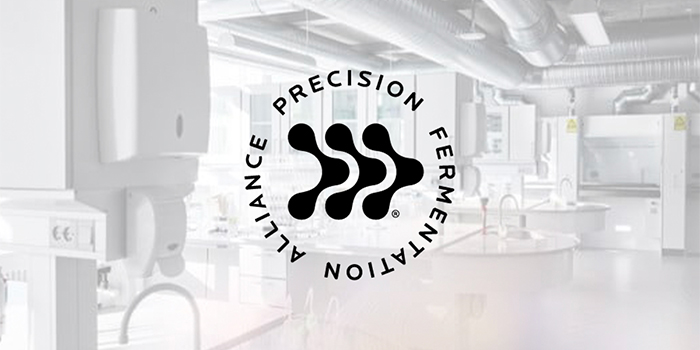Food Tech Players Form Precision Fermentation Alliance

Hoping to build better awareness and understanding of precision fermentation, nine food tech companies have formed the Precision Fermentation Alliance (PFA).
Founding members of the group include food producers (New Culture, The EVERY Company, Change Foods, Helania) as well ingredient providers (Perfect Day, Remilk, Imagindairy, Motif FoodWorks, Onego Bio), with six of the nine companies on focused on dairy proteins.
Nicki Briggs, VP of corporate communications for Perfect Day will serve as the organization’s chair while Irina Gerry, CMO at Change Foods holds the position of vice chair. Each founding company has one board seat as well. Membership is open to other brands, technical service providers, research or advocacy organizations, laboratory services and production or sales consultants. A spokesperson for the organization declined to share membership costs or other fees.
“This alliance codifies what we’ve always believed: a kinder, greener tomorrow is possible through collaboration,” Briggs said in a press release. “This ecosystem of mission-aligned leaders stands to exponentially accelerate what any one member could do alone.”
Precision fermentation, which uses genetically modified microorganisms to produce assorted proteins, has long been a technology used in food production, but has recently gained industry attention as more food tech brands have utilized it for their alt-dairy and meat products. The organization will focus on educational and marketing outreach, as well helping ensure “informed public policy.” Such efforts include:
- Helping industry members and consumers better understand precision fermentation technology, including “establishing global transparency” in order to “build trust and familiarity”
- Assisting key stakeholders such as producers and suppliers in understanding and following best practices in regulatory, manufacturing, food safety and compliance standards
- Engaging with regulators to help bring products to market faster and more effectively, including developing public and public-private funding partnerships
“Most of us have consumed foods that contain ingredients made using precision fermentation for decades, such as vitamins, enzymes and natural flavors, without much fanfare,” said Irina Gerry, CMO of Change Foods and vice chair of the PFA. “Ushering in this new era in food requires clear communication, thoughtful policy, consistent regulation and stakeholder engagement, which this alliance is positioned to do.”
Some trade groups or organizations have taken aim at precision fermentation companies for branding their products as “natural” or “non-GMO.”. Last year, the non-profit Non-GMO Project used national dairy month in May as an impetus to “call out” precision fermentation dairy brands, which it referred to as “syn-bio,” for using genetically engineered organisms. The group alleged that such practices could put farmers out of work, cause “the accidental release of new GMOs into the environment,” and rather than being a more sustainable option, actually continued the industry’s reliance on fossil fuels.
Responding to industry discussion and questions last year, New Hope, the organizer of the Natural Products Expo West and East trade shows, published a blog post stating why it would continue to allow precision fermentation companies to attend the show.
Other mission and sustainability-focused groups have started similar alliances in the recent past, including the Upcycled Food Association and The Plant Based Foods Association, with the former also offering a certification for upcycled food companies and suppliers. The PBFA, in particular, has also supported federal and state lobbying efforts for issues facing their constituents, such as access to agricultural subsidies as well as warding off legislation that would prohibit plant-based items from using terms typically associated with their animal-based counterparts.
















